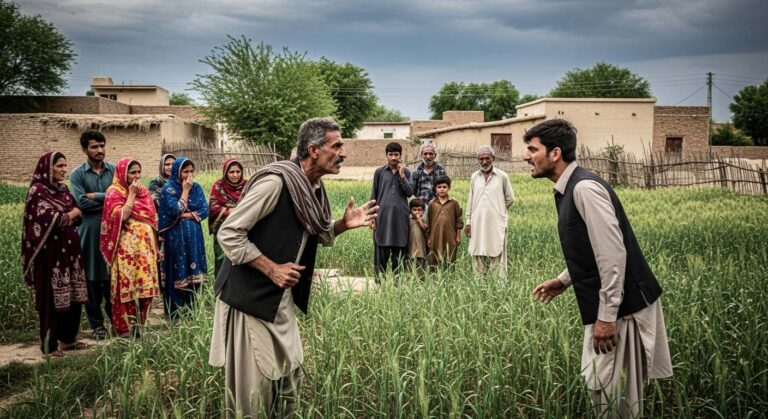Karachi’s Green Wheels: E-Bikes and Smart Transport Shaping Pakistan’s Urban Future

Karachi, Pakistan’s largest city, is often described as the country’s economic powerhouse. Yet, it also faces some of the toughest urban challenges — congested roads, traffic jams, air pollution, and rising fuel costs. In recent years, smart mobility solutions have started to reshape the city’s transport system. Among these, electric bikes (e-bikes) and eco-friendly transport initiatives stand out as innovative steps toward building a sustainable urban future.
Local startups in Karachi are introducing EV-based bike-sharing applications, offering residents an affordable and environmentally friendly commuting option. These developments are not just transforming Karachi’s mobility but also creating a model for other Pakistani cities.
Karachi’s Urban Transport Challenges
Karachi is home to over 20 million people, making it one of the most crowded cities in the world. With this population density comes a set of serious challenges:
- Traffic Congestion: Karachi’s roads are clogged with private vehicles, buses, and rickshaws, often leading to hours-long traffic jams.
- Air Pollution: According to environmental studies, Karachi is among the cities most affected by vehicular emissions, contributing to poor air quality and health risks.
- Rising Fuel Costs: With petrol prices continuously increasing in Pakistan, daily commuting has become expensive for workers and students.
- Limited Public Transport: Despite recent improvements, the city’s public transport system still struggles to meet the demands of its huge population.
These challenges highlight the need for sustainable and modern solutions.
Smart Mobility: The Rise of E-Bikes
To tackle these problems, local startups have introduced electric bike-sharing services. These e-bikes are powered by rechargeable batteries and can be accessed through mobile applications. Users can locate, unlock, and ride an e-bike for short or medium-distance travel, making them a convenient alternative to fuel-powered vehicles.
Key features of Karachi’s e-bike services include:
- App-Based Access: Riders can book and unlock bikes via mobile apps.
- Eco-Friendly Transport: E-bikes emit no harmful gases, reducing the city’s carbon footprint.
- Cost Efficiency: E-bike rides are cheaper compared to petrol bikes or rickshaws.
- Time Saving: Smaller and faster mobility options reduce the impact of traffic jams.
This innovation directly addresses both traffic congestion and environmental concerns.
Pollution Reduction: A Healthier Karachi
One of the most significant benefits of adopting e-bikes and green transport solutions is the reduction in air pollution. According to environmental experts, a large portion of Karachi’s air pollution comes from traditional vehicles burning fossil fuels. By shifting to electric mobility:
- Carbon dioxide emissions can be reduced.
- Noise pollution decreases because e-bikes run silently.
- Public health improves as cleaner air reduces respiratory diseases.
Thus, e-bikes are not just a convenience — they are a public health solution.
National Link: A Model for Pakistan’s Urban Future
Karachi’s shift toward smart mobility carries national importance. Other cities like Lahore, Islamabad, and Faisalabad also face similar urban transport challenges. If Karachi’s e-bike model proves successful, it could become a blueprint for Pakistan’s modern urban transport policies.
Some broader benefits for Pakistan include:
- Energy Efficiency: Reduced reliance on petrol lowers import bills.
- Green Economy: Promotion of electric mobility supports renewable energy growth.
- Employment Opportunities: Startups and service providers create new jobs in technology, transport, and maintenance.
- Smart Cities Vision: Aligns with Pakistan’s plans to modernize infrastructure and adopt sustainable city models.
Government and Startup Collaboration
The success of smart mobility requires cooperation between startups, local government, and the public. Encouraging steps include:
- Offering subsidies or tax benefits for electric vehicles.
- Building charging infrastructure across the city.
- Promoting public awareness about eco-friendly transport options.
- Integrating e-bikes with existing public transport networks.
Such initiatives ensure that smart mobility becomes accessible to all, rather than just a select group of users.
Challenges Ahead
While the progress is promising, Karachi still faces hurdles in fully adopting smart mobility:
- Lack of widespread charging stations.
- High upfront costs of electric vehicles.
- Limited awareness among the general public.
- Security and maintenance concerns in densely populated areas.
Addressing these challenges requires both public-private partnerships and consistent policymaking.
Conclusion
Karachi’s experiment with e-bikes and smart transport marks a turning point in Pakistan’s urban mobility. By reducing pollution, cutting down fuel costs, and easing traffic congestion, these innovations offer a sustainable path forward. More importantly, Karachi provides a national model that other cities can replicate to address Pakistan’s transport challenges.
The future of Pakistan’s urban transport may very well start on the green wheels of Karachi’s e-bikes. If nurtured with the right policies, investments, and public awareness, Karachi can transform from a city of traffic chaos to a leader in smart, eco-friendly urban mobility.


